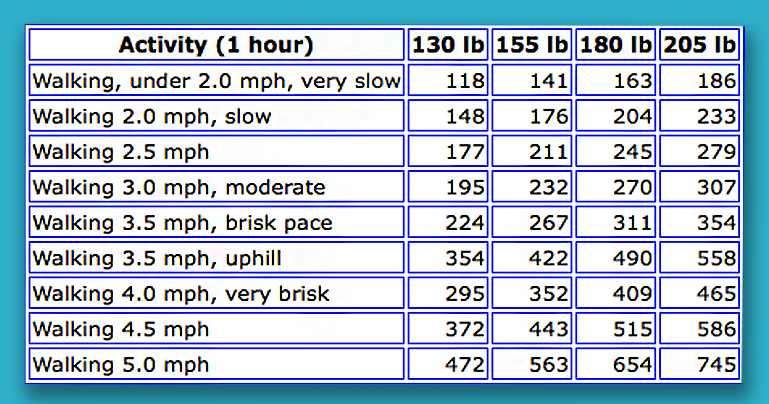Unlocking the Hidden Benefits of Walking: My Journey of 14,000 Steps
Written on
The Power of Walking: An Underrated Tool
Walking is often overlooked as a simple means of enhancing both mental and physical health.

Despite its simplicity, this activity can significantly elevate your quality of life. Interestingly, the average American only manages around 5,000 steps a day, and many lead predominantly sedentary lifestyles. If that sounds like you, don’t worry—you're in the right place! While most people recognize the importance of being active, fewer understand the profound benefits that walking can offer.
For the past three years, I've committed to walking an average of 14,000 steps daily. This has become a steadfast routine for me, one I have no intention of abandoning. I’m not sharing this to boast, but to highlight how integral walking has become in my life. My goal is to inspire you to embrace walking, regardless of your current activity level.
Exploring the Different Types of Walking
Walking is not just one-dimensional; there are various styles to explore that can enrich your life. Here are some types of walking that I've found effective:
- Mini-Walks for Breaks: Short walks during work hours.
- Brisk/Power Walks: More vigorous exercise aimed at step accumulation.
- Long, Leisurely Walks: These can be enjoyed in nature, perhaps while listening to a podcast or chatting with a friend.
Additionally, walks can be categorized by timing:
- Random Walks: When you feel the urge to get moving.
- Routine Walks: Scheduled walks at specific times, like morning or evening.
As I delve into the benefits of walking, I will reference some of these styles.
The Mental Boost from Mini-Walks
The primary purpose of mini-walks isn’t merely to accumulate steps; rather, they serve as an effective way to refresh your mind. Research supports that even a brief 15-minute walk can boost your mood, reduce fatigue, and enhance productivity.
To integrate mini-walks into your routine, I typically alternate intense work sessions (lasting 30-60 minutes) with brief walking breaks. There's no strict guideline on how long these breaks should be; anywhere from 5 to 15 minutes can suffice. Longer breaks of 20-30 minutes often follow extended work periods. If I'm feeling stuck or frustrated, a quick walk often revitalizes my focus.
Choosing Your Walking Environment
It's essential to find a location that suits you and fits into your schedule. I’m fortunate to live in New Zealand, where lush, green surroundings are plentiful. While nature walks are generally more beneficial, simply getting up and moving is what truly matters.
What to Avoid While Walking
During your walks, it's advisable to refrain from:
- Using your phone
- Listening to music
The goal is to allow your mind to unwind, free from distractions. Just walk in silence to recharge your mental energy!
Benefits of Mini-Walks
After implementing mini-walks, I've noticed a range of positive effects, such as:
- Enhanced focus and energy
- Decreased fatigue
- Increased motivation to dive back into work
These breaks are simple, cost-free, and yield numerous advantages—give them a try!
Long Walks for Relaxation
The long walks serve a different purpose—they are more therapeutic. These walks allow you to immerse yourself in the present moment and can be a form of moving meditation. Whether you choose to walk at dawn or dusk, the experience can be deeply fulfilling.

Imagine taking an evening stroll on the beach, either alone or with a friend—doesn’t that sound delightful? You can choose to clear your mind, observe nature, or listen to a podcast while enjoying the scenery.
Walking for Physical Health
In our increasingly inactive lifestyles, walking stands out as an excellent way to engage in physical activity with minimal exertion. If you find traditional cardio unappealing, walking may be the perfect alternative.
While I’m not focused on weight loss, walking remains an underrated tool for maintaining fitness and staying active. The following table estimates the calories you can burn based on your weight and walking speed.

If you weigh 150 pounds and walk at a moderate pace, you can burn around 100 calories in just half an hour. Although this may seem minimal, it adds up significantly with consistent walking.
Rediscovering Your Energy
If you're tired of feeling sluggish from prolonged sitting, try getting up for a walk. I find that a simple stroll can produce an energizing effect, counteracting that lethargic feeling. Aim to incorporate movement into your day, whether it's around your home or during longer walks when time permits.
Tips for Increasing Your Step Count
To help you increase your daily step count and burn extra calories, consider the following strategies:
- Walk during work breaks.
- Walk while brushing your teeth.
- Walk while talking on the phone.
- Walk while enjoying a light snack.
- Park further away from your destination.
- Walk around while waiting for public transport.
While some of these may seem unconventional, who cares? Embrace the quirkiness!
Start Slowly
For some, the idea of walking 14,000 steps daily may feel overwhelming, especially if you’re currently at 5,000. Utilize your phone’s built-in step tracker to monitor your progress. If you typically walk 7,000 steps, gradually add 1,000 steps per week and listen to your body’s feedback.
Remember, It’s Not Just About Steps
The goal isn’t to obsess over a specific step count but to enjoy the benefits of walking. Avoid making it a chore or setting unrealistic targets that could sour your experience. Once you've established a comfortable routine, you can focus on the myriad benefits walking offers.
Implement various walking styles discussed here to enhance your mental, physical, and emotional well-being. Who knows? You might just spot me on one of my walks!
Chapter 2: Insights from Walking Challenges
In this video, I share my experience of walking 15,000 steps daily for a week. You'll discover the unexpected transformations that came from this challenge.
In this video, I reflect on my two-year journey of walking 15,000 steps a day, discussing the valuable lessons learned along the way.